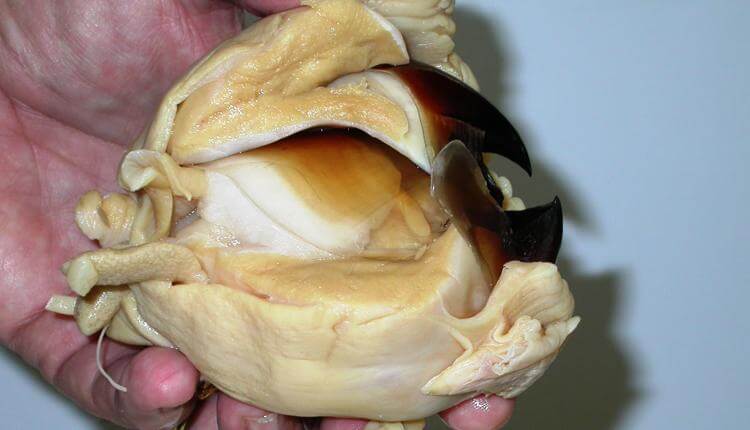Sperm whales are known and have been hunted for their production of ambergris, a substance of great value that has historically been used notably in the perfume industry. It is estimated that ambergris is produced in the digestive system of just 1% of all sperm whales.
The sperm whale’s diet is mainly composed of squid, invertebrates with a sharp, horny beak. Given that these beaks are not digestible, they will normally accumulate in the stomach before being regurgitated by the whale.
However, due to a pathology in the digestive system of some sperm whales, squid beaks could end up in their intestines and irritate the walls thereof. Sperm whales seem to have the ability to secrete a high-cholesterol substance that allows them to group together and coat these beaks. Accumulating in the intestine, the secretion-coated beaks likely end up forming aggregates that are either eliminated with feces or continue to build up and potentially block the intestine or even the anus. In such cases, the mass of ambergris could cost the sperm whale its life.
Learn more
- (2002) Rice, D. W. Ambergris. (États-Unis). Encyclopedia of Marine Mammals: 20-21.







